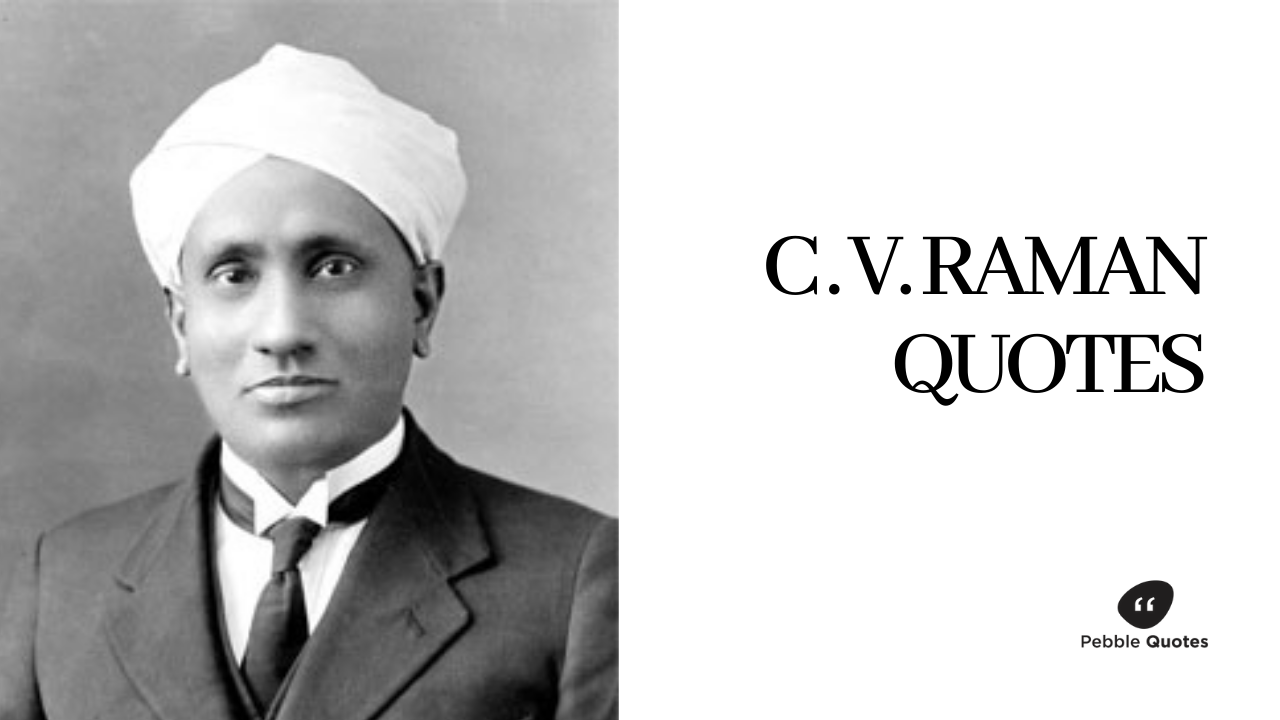The famous Indian physicist Dr. Chandrasekhara Venkata Raman Sir, popularly known as C. V. Raman. He was born on 7 November 1888 in the city of Trichinopoly, Madras Residency, British India. Today’s city name is Tiruchirappalli in the Indian state of Tamil Nadu, and died on 21 November 1970 in Bangalore.
Dr. C. V. Raman was belonging to South Indian Hindu Tamil Brahman Family in Tiruchirappalli, Tamil Nadu. His Father’s name was Chandrasekhara Ramanathan Iyer, and his mother’s name was a Parvathi Ammal. He Married Lokasundari Ammal & had two sons, Namely Radhakrishnan and Chandrasekhar. His father was a lecturer in Mathematics and Physics in the college of Vishakhapatnam. He acquired the skills of Mathematics and Physics subject from his father. Dr. C. V. Raman was a precocious, intelligent, and brilliant student since his early childhood. At the age of 11 to 13, he passed matriculation and 12th Class with Scholarships, respectively. Dr. C. V. Raman completing his secondary and higher secondary education from the St Aloysius Anglo Indian School. He entered the Presidency college of Madras in 1902 and passed his B. A. examination in 1904. At that time, He is winning the first gold medal in physics and English. When Dr. C. V. Raman passed, his teachers advised him to go to England to complete further studies, but the Civil Surgeon of Madras ruled it out, claiming that the young Raman was too frail to withstand the English climate. In 1907, Instead, Dr. C. V. Raman received the M. A. degree, and obtaining the highest distinctions marks gained in the same College, and broke all the previous records. Dr. C. V. Raman Grow up with his father’s casual behave about religion, but sometimes he observes some Hindu rituals, cultures, and some respected traditions. When Dr. C. V. Raman was born, the family condition was not good, when Dr. C. V. Raman was 4 years old; his father got a better job, as a lecturer in the college and the family shifted to Waltair (Vishakhapatnam).
Dr. C. V. Raman work in the field of light Scattering, he discovered that when light transparent material, some of the light that is deflected changes in wavelength, and these phenomena is called Raman scattering, mainly known as Raman Effect. Influential work in the growth of science in India and his contribution to science and innovation research helped all over the world. When he was 19 years of age he joined the Indian Finance Service in Kolkata as an Assistant Accountant General. Raman was enormously enthusiastic about science. He was very interested in science since childhood, read his father’s books, and brought books of physics and mathematics from his father’s college library. Did you know? The first research institute in India, The Indian Association for the Cultivation of Science (IACS), they are allowed him to do independent research and in that time, he made his major contributions in acoustics and optics.
Dr. Chandrasekhara Venkata Raman (C.V. Raman): Awards and Honors.
- In 1912, Raman received the Curzon Research Award, while still working in the Indian Finance Service.
- In 1913, he received the Woodburn Research Medal, while still working in the Indian Finance Service.
- In 1930, he received the Hughes Medal of the Royal Society; He was elected as a Fellow of the Royal Society early in his career and was knighted in 1929.
- In 1930, the first Asian person to win a Nobel Prize in Physics for his work Raman Scattering and Raman Effect.
- In 1942, He was awarded the Franklin Medal.
- In 1954, He was awarded the Bharat Ratna, the highest civilian award in India.
- In 1957, he was awarded the Lenin Peace Prize.
- The American Chemical Society and the Indian Association for the Cultivation of Science in 1998 recognized Raman’s discovery as an International Historic Chemical Landmark.
- India celebrates National Science Day on 28 February every year, to commemorate the discovery of the Raman Effect in 1928 in his honor.
In 1970, he received a major heart attack while working in the laboratory. He took his last breath in the Raman Research Institute on 21st November 1970.
C.V. Raman Quotes
- It is not often that idealism of student days finds adequate opportunity for expression in the later life of manhood. C. V. Raman
- I am the master of my failure, if I never fail how will I ever learn. C. V. Raman
- Treat me right and you will see light, treat me wrong and you will be gone. C. V. Raman
- You can’t always choose who comes into your life but you can learn what lesson they teach. C. V. Raman
- It was poverty and the poor laboratories that gave me the determination to do the very best I could. C. V. Raman
- Ask the right questions and nature will open the door to her secrets. C. V. Raman
- Success can come to you by courageous devotion to the task lying in front of you. C. V. Raman
- We need a spirit of victory, a spirit that will carry us to our rightful place under the sun, a spirit which will recognize that we, as inheritors of a proud civilization, are entitled to a rightful place on this planet. C. V. Raman
- Real growth of a country was in the hearth, minds, bodies, and souls of young men and women of the country. C. V. Raman
- If someone judges you, they are wasting space in their mind. The best part, it’s their problem. C. V. Raman
- The essence of the scientific spirit is to realize what a wonderful world it is that we live in. C. V. Raman
- The whole edifice of modern physics is built upon the fundamental hypothesis of the atomic or molecular constitution of matter. C. V. Raman
- The true wealth of a nation consists not in the stored-up gold but in the intellectual and physical strength of its people. C. V. Raman
- In the history of science, we often find that the study of some natural phenomenon has been the starting point in the development of a new branch of knowledge. C. V. Raman
- the true wealth of a nation consists not in the stored-up gold but in the intellectual and physical strength of its people. C. V. Raman
- I think what is needed in India today is the destruction of that defeatist spirit. C. V. Raman
- I feel it is unnatural and immoral to try to teach Science to children in a foreign language. They will know facts but they will miss the spirit. C. V. Raman
- I have a feeling that if the women of India take to science, they will achieve what even men have failed to do. Women have one quality – the quality of devotion. It is one of the most important passports to success in science. Let us not imagine that intellect is a sole prerogative of males, in science. C. V. Raman
- To an observer situated on the moon or on one of the planets, the most noticeable feature on the surface of our globe would no doubt be the large areas covered by oceanic water. The sunlit face of the earth would appear to shine by the light diffused back into space from the land and water-covered areas.” C. V. Raman
- “We must teach science in the mother tongue. Otherwise, science will become a highbrow activity. It will not be an activity in which all people can participate.” C. V. Raman
- “The fundamental importance of the subject of molecular diffraction came first to be recognized through the theoretical work of the late Lord Rayleigh on the blue light of the sky, which he showed to be the result of the scattering of sunlight by the gases of the atmosphere.” – C. V. Raman
- The essence of science is independent thinking, hard work, and not equipment. When I got my Nobel Prize, I had spent hardly 200 rupees on my equipment. C. V. Raman
- I would like to tell the young men and women before me not to lose hope and courage. Success can only come to you by courageous devotion to the task lying in front of you. C. V. Raman
- It is generally believed that it is the students who derive benefit by working under the guidance of a professor. In reality, the professor benefits equally from his association with gifted students working under him. C. V. Raman
- All the instruments of percussion known to European science are essentially nonmusical and can only be tolerated in open-air music or in large orchestras where a little noise more or less makes no difference. C. V. Raman
- Towards the end of February 1928, I took the decision of using brilliant monochromatic illumination obtained with the aid of the commercially available mercury arcs sealed in quartz tubes. C. V. Raman
- It will soon be 25 years from the date of publication of my first research work. That the scientific aspirations kindled by that early work did not suffer extinction has been due entirely to the opportunities provided for me by the great city of Calcutta.

